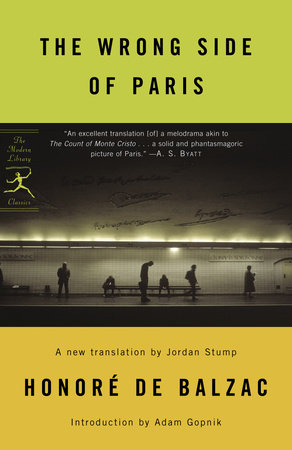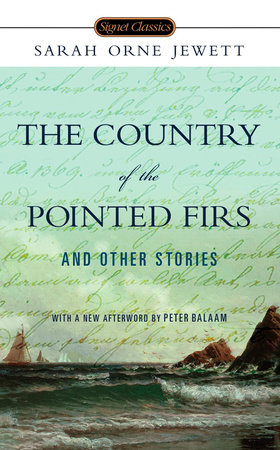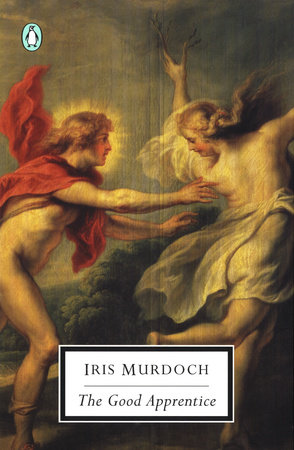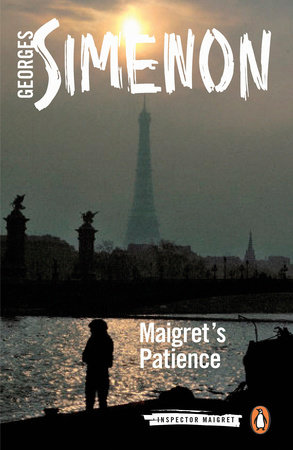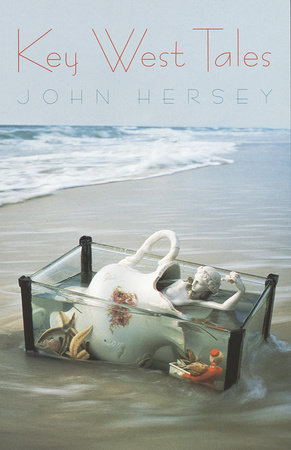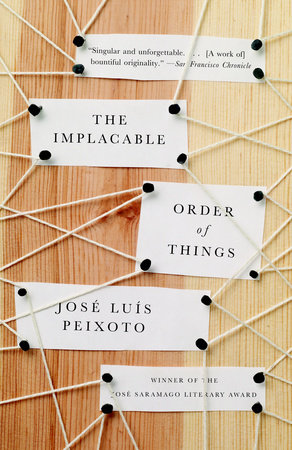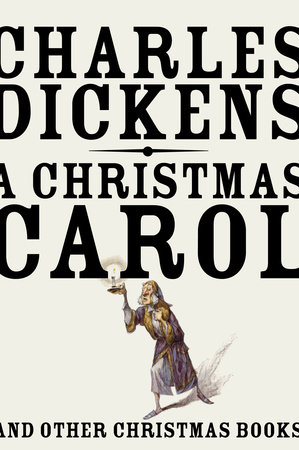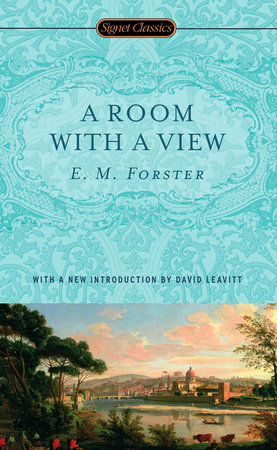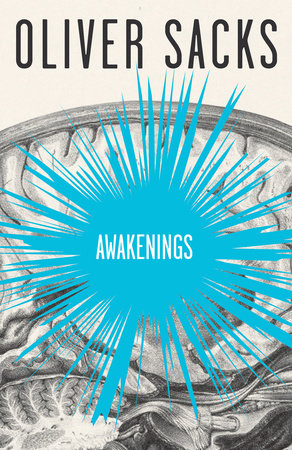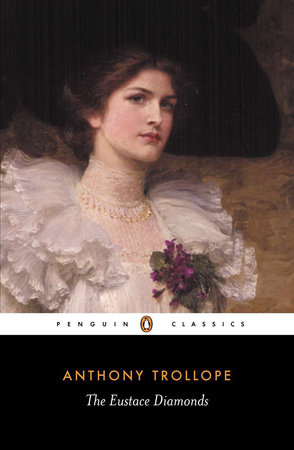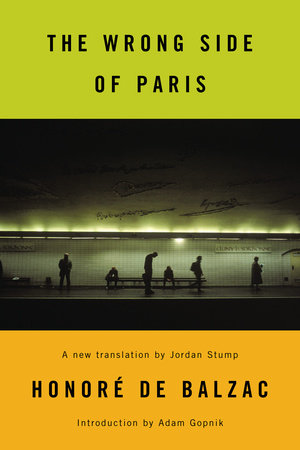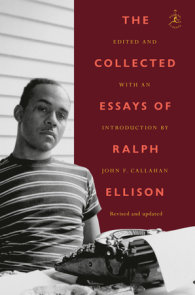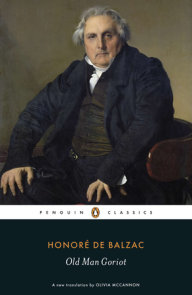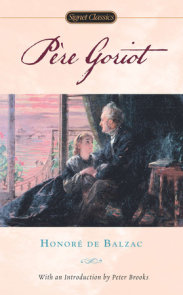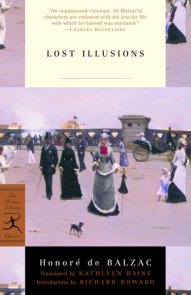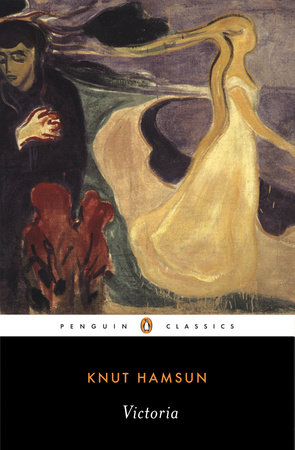Author Q&A
1. How long have you been studying and teaching the works of Balzac? What draws you to his novels?
Like a great many people, I imagine, I first read Balzac in high school: a translation of Pere Goriot that I don’t think made much of an impression on me. I began to read him in French as an undergraduate, but it was in graduate school that I really fell under his spell, thanks to a wonderful course with Armine Kotin Mortimer at the University of Illinois. Since then, I’ve read and taught him sporadically–my specialty is twentieth- and twenty-first-century fiction, so my thoughts have been elsewhere–but he hasn’t lost his hold on me. I think this largely comes from that wonderful voice of his, serious and hilarious, self-assured but never Olympian, often wry but always sympathetic to the denizens of his rich little world (winners and losers alike, noble and ignoble); but more generally I love his profoundly unreasonable side, his unwillingness to fade into the background of the narration, his excesses, his odd enthusiasms, his tender or horrified fascination with the ordinary, the fearless gravity with which he treats the extraordinary and the inexplicable.
2. How did you conclude that L’envers de l’histoire contemporaine needed a new translation, and how did you come up with the English title, The Wrong Side of Paris?
There are two existing English translations of L’envers de l’histoire contemporaine, both about a hundred years old, both long since out of print. In both cases, the translators had embarked on the monumental task of translating the entire Comédie Humaine (Clara Bell in collaboration, Katharine Prescott Wormeley all alone); my impression is that both see L’envers as a minor element of Balzac’s vast tableau, and so give it rather less care than the better-known texts. In many ways, this strikes me as entirely understandable: they had a great many books to translate, and who knows how little time, and they were working with a technology that made revision far less easy than it is today. For whatever reason, neither translation ends up being nearly as astonishing and delightful as the original; I thought Balzac’s novel deserved a bit more attention and more passion than they’d devoted to it–and then of course I simply wanted the sheer pleasure of translating it myself!
As for the title, it’s not my own creation: for that I’m indebted to David Ebershoff of the Modern Library. Balzac’s title is literally The Underside of Contemporary History–lovely in French, but a bit cumbersome in English. I admire David Ebershoff’s title very much, because, like Balzac’s, it describes the entire novel without seeming to. The book is set in two Parisian houses, both of which are, in a sense, on the wrong side of the city, one because it’s wretched and run-down and in a bad neighborhood, the other because it’s a little islet of noble sentiment in the middle of a superficial, grasping metropolis. And the people who live in that latter house have all suffered greatly because they got on the wrong side of the government, and the people in the former house all suffer greatly because they’re trapped on the wrong side of the socio-economic scales. It’s a wonderful title, for which I’m very grateful.
3. How would you compare The Wrong Side of Paris to Balzac’s best known works, such as Pere Goriot, Lost Illusions, or Cousin Bette?
It certainly has a great deal in common with those three, and with a lot of Balzac’s other novels: the same unrelenting dissection of the complicated workings of French society, the same preoccupation with the collisions and interpenetrations of different social strata, the same meticulous eye for the telling detail, the same fascination with the ambitious, the defeated, the debased, the ruthless, the pure of heart. But it’s also a good deal stranger and more idiosyncratic than those three, thanks in part to its particularly overt championing of two of Balzac’s most cherished causes–the Church and the Monarchy–but also to its deeply Romantic (or even Gothic) imagination, its lovingly over-the-top depiction of transcendent goodness, virtuous suffering, and even of the beauty of suffering. In his introduction, Adam Gopnik writes that this book “takes an abrupt turn into the dark, the magical, and the just plain weird”–and that, I think, is one of the great distinctions and one of the great pleasures of The Wrong Side of Paris.
4. A. S. Byatt, in the New Statesman, recently called your translation “excellent,” writing that she has “come increasingly to love and admire [Balzac’s] wild mixing of tones and speeds, and Stump does create an English equivalent.” Was this difficult for you to achieve? What was the most challenging part of translating this novel?
Translation is always difficult, which doesn’t mean that it isn’t also immensely entertaining and engrossing (so the most challenging part of this project was often putting it aside in order to devote my attention to my other daily tasks). It’s generally not hard to translate one sentence, nor to then go on and translate a second; more difficult is making the two sentences fit together, so that the second sounds as though it came from the same source as the first. This is the question I continually asked myself as I worked: does this word, this phrase, this sentence fit in? Is it the kind of thing I can imagine Balzac saying? The problem of course is that I have no basis for judgment other than my own subjective understanding, which means continual vacillation and constant revision. Mind you, I’m not complaining: this is how I work–full of doubts and uncertainties, gradually resolving them through endless reconsideration–and I’m perfectly happy with it. Ideally, the revisions come to an end one day, when I find a certain kind of unbroken intensity in the language from the first page to the last. The odd thing is that, because of all these revisions, the final draft always feels a bit distant from me: it’s the product of so many re-thinkings over such a long time that it doesn’t strike me as something I wrote or could have written. I suppose that’s when a translation is really done: when I can read through it from start to finish and continually say to myself, “That doesn’t sound like something I’d write.”
5. As a translator, do you find you have any literary license while working on a book such as this?
Nothing but–that’s what makes it so hard! Translation is a kind of writing, and it comes with all the liberties available to any writer, along with one rather serious constraint: you can do whatever you want, but your book has to look as much like this other book as it possibly can. The translator has to decide what the other book looks like, what “looks like” means, and how a new text might be created according to that definition. For example, say you want to translate a poem written in rhymed couplets. There are two ways that you could make your translation look like the original: by reproducing the rhyme and meter, altering the literal sense to whatever degree is needed, or by rendering the full meaning of the lines without regard for their formal characteristics. Two ways of looking like the original poem: which is the right one? That’s what the translator has to decide, and then how to do it. So the question isn’t whether one does or does not take liberties with the original, but what liberties one chooses to take, and how. I try to be discreet, and to use my license only when I can clearly explain to myself why I’m doing so; but if recasting a sentence makes it work better in the context of the translation, or if a phrase seems to me more convincing if expressed a bit more emphatically than the original, I don’t hesitate. Once again, however, you’ve got to be continually asking yourself: is this good? does it fit? And then, once you’ve decided that it does, you’ve got to go back to it again later and ask yourself if you still think so. The price of literary license should be eternal self-doubt.
6. What other writers have you translated? Is there a particular writer you’ve always wanted to translate but couldn’t? If so, why?
Apart from Jules Verne’s The Mysterious Island, my translations so far have all been of contemporary writers: Marie Redonnet, Éric Chevillard, Patrick Modiano, Christian Oster, Claude Simon, Antoine Volodine. Translating older writers gives me a chance to write in a style I don’t often get to use, and I dearly hope to be able to go on translating old and new alike, choosing my projects solely on the basis of my love for the book in question. There are lots and lots of writers I’d love to translate, but who have unfortunately already been well translated: Raymond Queneau, Marie Ndiaye, Georges Perec, Raymond Roussel, Colette . . . The list is essentially endless, since it seems I can’t like a book without wanting to translate it. For me, translating is like an especially intense form of reading; in a perfect world, then, I would translate every book I like, of which there are a great many. In the real world, I first have to find a publisher who’s willing to indulge me–in which, so far, knock wood, I’ve been more than lucky.
